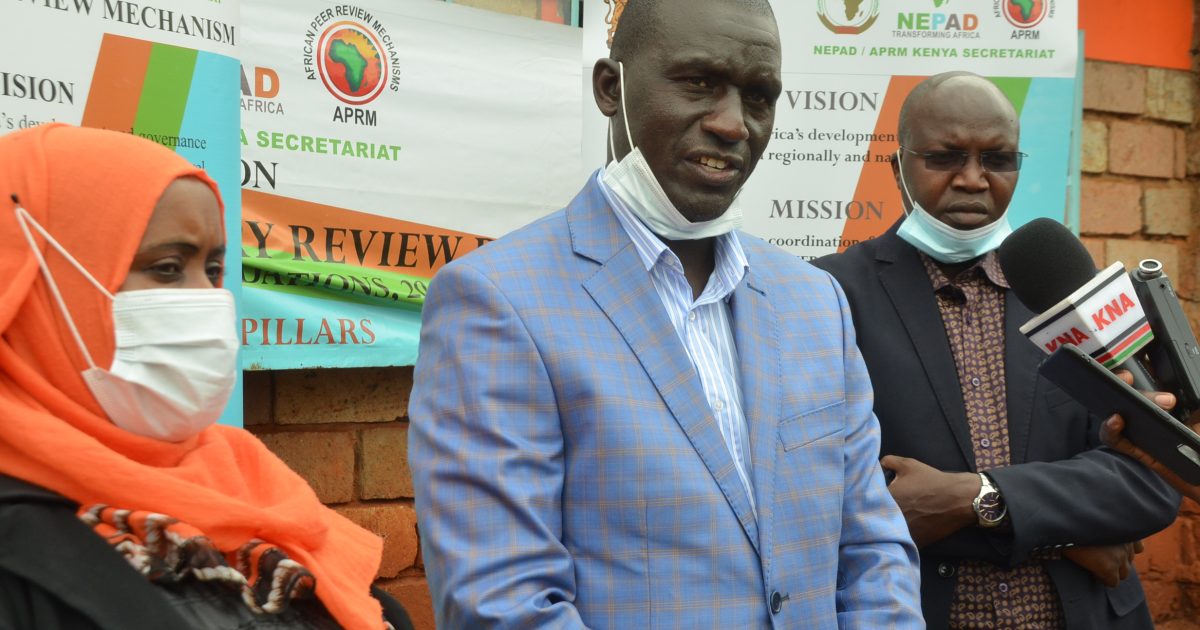A report by African Peer Review Mechanism (APRM) has revealed that workforce in devolved units is dominated by major local ethnic groups.
The review conducted between 2016 and 2017 under the directive of President Uhuru Kenyatta showed that all counties have not met employment of at least 30 percent of the workforce from communities outside respective devolved units.
Speaking during a forum to disseminate the report to stakeholders in Murang’a on Friday, APRM Director of governance Mr. Peter Kimemia observed that the Constitution required the dominant ethnic group in every county to take up 70 percent of employment and the rest be occupied by workers from other communities.
Kimemia further said that another wave of marginalization also emerged when minority communities in the counties felt sidelined and were not given priority during employment.
He stated that the need to have workers from other ethnic groups being employed in counties is to promote national unity and cohesion.
“The provision to have at least 30 percent of workers in the county recruited from other communities may help in fostering national unity and cohesion,” he added.
The director further noted that the country still has a lot of work to do in its diversity management as tribalism appears to have become a bigger problem with devolution.
APRM is steered by the New Partnership for African Development (NEPAD) which was established by and operates under African Union (AU).
The report further revealed that the country is facing a major challenge of youth unemployment stating that the problem is not only in Kenya but in the entire African continent.
A Board Member of NEPAD Mr. James Maina stated that leaders needed to find a solution for youth unemployment as a matter of priority as the challenge posed a threat to the country’s stability.
He regretted that in spite of the Constitution requirements for gender equity, the country is still unable to put mechanisms in place to ensure inclusivity.
The report, however, commended the country for successful review and implementation of the 2010 Constitution.
It pointed out that the establishment of independent offices and commissions in the 2010 Constitution as some of the highlights of the new document that demonstrated that the country is on the right governance path.
Maina noted that Kenya got a commendation for improving service delivery through the one-stop-shop Huduma Centres where Kenyans can access many services under one building.
He added that the country has also received accolades for leveraging on technology to solve citizens’ day to day problems pointing out that M-Pesa money transfer solution and the installation of relatively cheap internet connections as developments that have made life easier for citizens.
“The report also revealed that the introduction of mandatory public participation before the implementation of major programmes and projects by the government has increased citizen participation in governance,” He further stated.
Maina observed that following the success of the APRM, they now want to extend the same kind of peer review to counties to strengthen governance.
ARPM has already secured commitment from Kwale, Embu, Murang’a, Narok, Homa Bay, Bomet, Makueni and Garissa counties for the peer review from next year.
By Bernard Munyao




